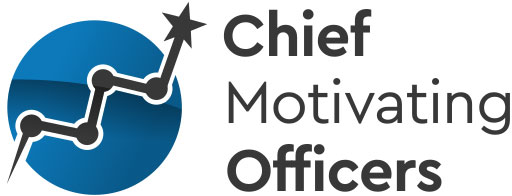Newsflash: Being a leader is hard.
I spend a lot of time conversing with managers, CEOs, and directors in their organizations, especially during times of stress. Happy to be a helpful ear, I listen intently, witholding commentary and “fixes” in many cases. Beside the fact that I dont have enough information to diagnose or intervene, often these leaders aren’t looking for a solution, and providing one would be percieved as dismissive of their experiences. I’m absolutely honored that these incredible people have treated me as a “safe” person with whom to vent – a big reinforcer for my work and communication strategy.
In these listening moments, I’ve been noticing trends in the struggles some of the top leaders I get the honor to chat with. These conversations are often very similar; however, because of the stigma of openly communicating potential moments of uncertainty or discomfort, the loneliness and guilty feelings settle into their thought patterns. They often say things to me like, “I know I’m better than this.” Because of the lack of conversation around the struggles of leaders, their issues are perceived as “weakness”.
I’m writing this now for the leaders who are feeling lonely, at times selfish or guilty, tired… You’re not alone. You’re not weak. You are human.
We strive every day to figure out what our employees need to be successful. We listen intently to their feedback, we focus on determining their motivations and reinforcers, we encourage them to take care of themselves. They need us to do these things, because they are beautifully flawed humans with histories and motivations and dreams. And we are too!
Everyone wants to be heard. Leaders spend an incredible amount of time communicating with others, coordinating, arranging, handling crises, being a sounding board for conflicts and complaints. But who do leaders go to for a friendly ear when things are getting tough? Venting at employees, obviously, isn’t a great idea. Going to other leaders in the organization can evoke interpersonal conflicts. Not everyone has a coach or mentor who will listen. In absence of the appropriate communication response, we tuck our communication needs away in favor of providing this space to our employees for their issues.
Everyone needs to contact reinforcement. Leaders often give, give, give. They understand that their employees do better in a reinforcement-rich environment with lots of positive feedback. But who is providing this to the leader? Reinforcement (both positive and negative, for what it’s worth) often flows from the top-down. Employees, in many cases, have not been taught to provide other people feedback, as their primary focus is completing the job at hand. Other leaders are busy providing feedback for their teams and on their own work, and are also probably not contacting a lot of reinforcement either. So we move forward in our day to day, with the schedule getting thinner and thinner. This often results in ratio strain, which may appear to be emotional responses to things that would typically not bother the leader… An example I’ve used (with an EO, clearly) is that if you’re eating a bag of cookies, and you’ve just had a cupcake, it doesn’t bother you as much when someone walks up and takes one without asking. However, if you’re so hungry and haven’t had cookies in a long time, this cookie thievery can absolutely wreck your day.
Everyone needs to take time for themselves. Leaders are so often the backbone of their organizations, and take on the weight of their business wholeheartedly. But if they hear a valuable employee has been up responding to client emails until 3 am, picking up the phone on the weekend, and otherwise sacrifice their personal and family time, good leaders often step in and help reallocate tasks and help set boundaries. Yet we so often don’t do this for ourselves. We keep ourselves available at all times, day or night, constantly overloading ourselves until we break down.
I write this because I’ve been there. I’ve been the listening ear with no sounding board. I’ve been on the thinnest reinforcement schedule while still showering others with praise. I’ve been the one helping someone set new priorities and gathering new resources, all while my own incomplete tasks sunk to the bottom of my priority bucket. So I’m writing this today to give you permission (for anyone who feels they need it) to:
- Be open about what struggles you’re facing in your leadership role. Reach out to someone who has the capacity to listen, and be their listener in return. Leaders can lean on one another.
- Ask for reinforcement, help, or anything else you may need. Let your supervisees practice upward feedback, and reinforce their delivery of positive reinforcement in all directions: down to their staff, across to their peers, and up to their leaders. Be excited about your accomplishments, and share them with people who will step up with kind words! (And no, it isn’t bragging when you share something good that is happening, and there is no shame in altering your own reinforcement schedule by doing so!) Leaders need reinforcement, too!
- Turn off once in a while. I’m learning to practice this myself. You can set boundaries without being a jerk. Communicate clearly when you will be available for responding to emails, taking calls, etc. (in lieu of some emergencies, which you can define for everyone), and encourage your teams to set their own reasonable boundaries as well. Leaders are more than their work!
I hope this can help at least one leader realize that they are humans, too. You’re not a robot without feelings, with no need for praise, connection, or downtime. Even if you take just one thing I’ve written here and slowly strive for a change, that baby step can be the trigger for an entire new view on yourself: the human leader.


What a great and refreshing read!
Thank you Shannon. I needed this article. ❤